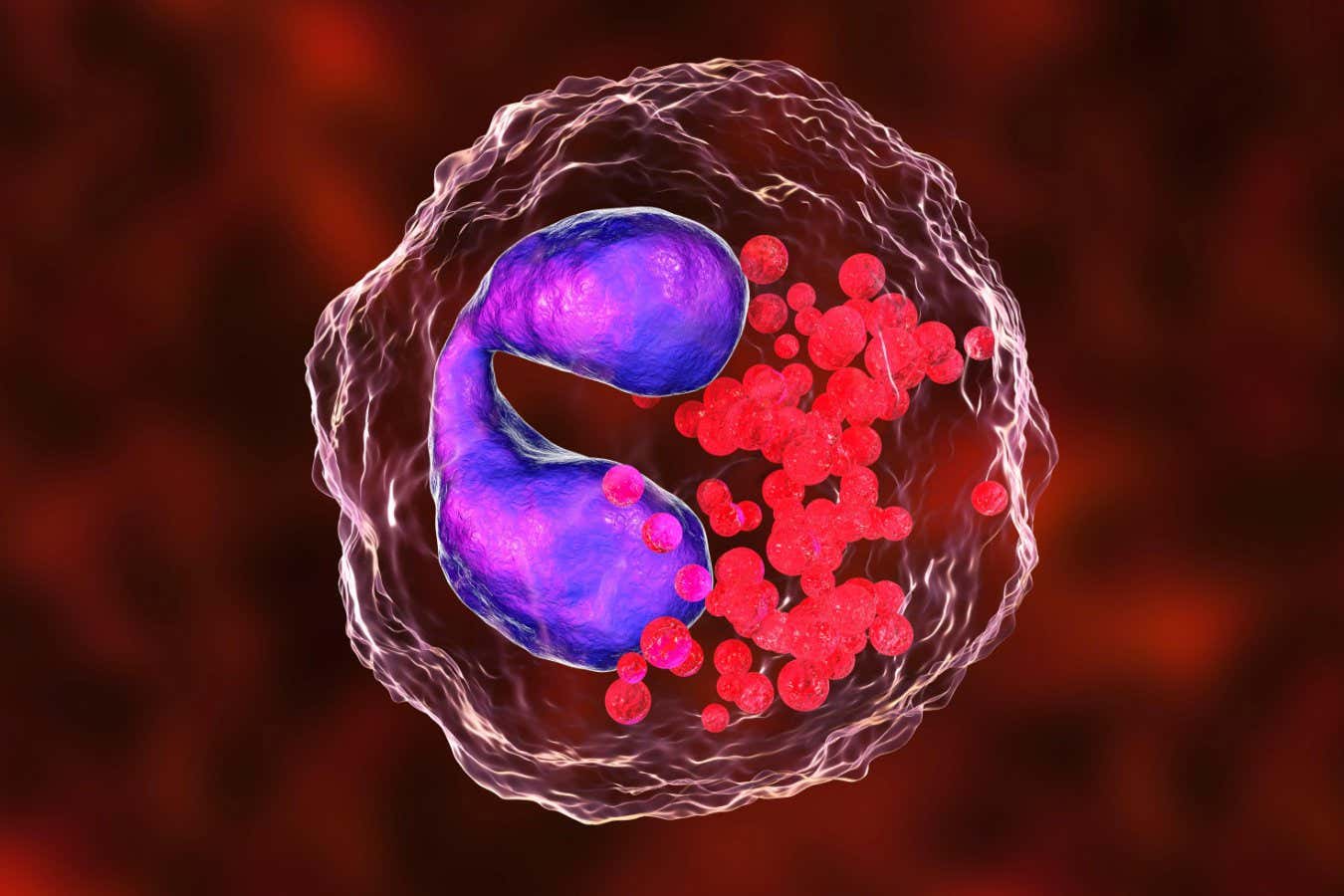A single dose of genetically engineered immune cells reduced asthma symptoms in mice for at least a year
By Michael Le Page
27 May 2024
An eosinophil immune cell, which can be involved in asthma
KATERYNA KON/SCIENCE PHOTO LIBRARY/Alamy
It might be possible to effectively cure the most common form of asthma by using genetically engineered cells to kill off the rogue immune cells that trigger asthma attacks, a study in mice suggests.
But making this kind of treatment affordable will be a major challenge, and its risks mean it would probably be given only to those who get life-threatening asthma attacks.
“For most asthma patients, an inhaler is probably enough, however, approximately 250,000 people die from severe asthma annually,” says Min Peng at Tsinghua University in Beijing, China. “[This] could be an option for those patients.”
Advertisement
Read more
How CRISPR therapy could cure everything from cancer to infertility
Asthma is a condition in which the airways swell and narrow, making it difficult to breathe. Asthma attacks can be triggered by factors such as allergies or air pollution.
Most cases of asthma involve a process called the type 2 immune response. This is meant to protect against parasites such as worms but can lead to excess numbers of immune cells called eosinophils. Inhaled steroids can usually damp down this response and reduce symptoms, but people with severe asthma may require regular injections of antibodies designed to reduce the number of eosinophils.
